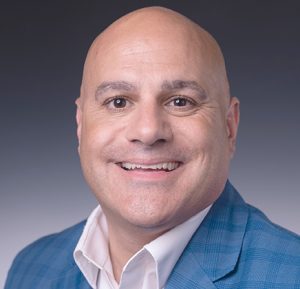UTICA, N.Y. — Mohawk Valley Health System (MVHS) in Utica is operating an outpatient center to provide monoclonal antibody therapy for patients with COVID-19.
Monoclonal antibody therapy helps prevent hospitalization or worsening of symptoms in certain patients with COVID-19. The treatment works at “enhancing” the body’s natural immune response to the virus, “but it may not be appropriate for everyone and needs a referral from a physician.”
Located on the fifth floor of MVHS’s St. Luke’s campus at 1656 Champlin Ave., the infusion center administers the monoclonal antibody therapies. The U.S. Food and Drug Administration (FDA) has authorized the therapies under an emergency-use authorization (EUA).
(Sponsored)

How CH Insurance’s BOOST Program Optimizes Group Benefits for Small Businesses
For small business owners, navigating the complexities of group benefits can be overwhelming. Between compliance regulations, cost considerations, and employee expectations, offering a competitive benefits package often feels like a

What is Fiducuary Liability and how does it affect you and your business?
Managing a company’s insurance needs can be complex and stressful. It doesn’t need to be when adding certain specialty insurance products, like fiduciary liability insurance. It protects the sponsoring company;
“Patient outcomes have proven that these treatments can improve symptoms sooner and reduce the likelihood of a patient needing hospitalization when treatment is received within 10 days of having COVID symptoms, which is critical for patients who are in the high-risk group,” Amy Bowerman, executive director of MVHS Home Care Services, said.
The MVHS clinic offers therapies that include Bamlanivimab, which is manufactured by Eli Lilly & Co. and a combination of casirivimab and imdevimab, administered simultaneously (known as Regeneron), MVHS said.
Patients who have been diagnosed with COVID-19 and meet the criteria for antibody therapy should contact their primary-care provider to schedule treatment.
These therapies are not authorized for use in patients who are hospitalized due to COVID-19; require oxygen therapy due to the ilness; or require an increase in baseline oxygen flow rate due to COVID-19 in those on chronic oxygen therapy due to an underlying non-COVID-19-related comorbidity, MVHS said.
Physician referral
A physician needs to order the therapy for the treatment of mild to moderate COVID-19 in adults and pediatric patients. Those patients need to have positive results of direct SARS-CoV-2 viral testing; be 12 years of age or older; weigh at least 88 pounds and be at high risk for progressing to severe COVID-19 and/or hospitalization.
High risk is defined as patients who meet at least one of the following criteria:
- Have a body mass index (BMI) of 35 or more
- Suffer from chronic kidney disease
- Have diabetes
- Suffer from immunosuppressive disease
- Are currently receiving immunosuppressive treatment
- Age 65 or older
- Are 55 years of age or older AND have cardiovascular disease OR hypertension, OR chronic obstructive pulmonary disease/other chronic respiratory disease
- Are 12 to 17 years of age AND have a BMI at or above the 85th percentile for their age and gender based on Centers for Disease Control and Prevention (CDC) growth charts: cdc.gov/growthcharts/clinical_charts.htm; OR sickle cell disease; OR congenital or acquired heart disease; OR neurodevelopmental disorders, such as cerebral palsy; OR a medical-related technological dependence, such as tracheostomy gastrostomy or positive pressure ventilation (not related to COVID-19); OR asthma, reactive airway disease or other chronic respiratory disease that requires daily medication for control




